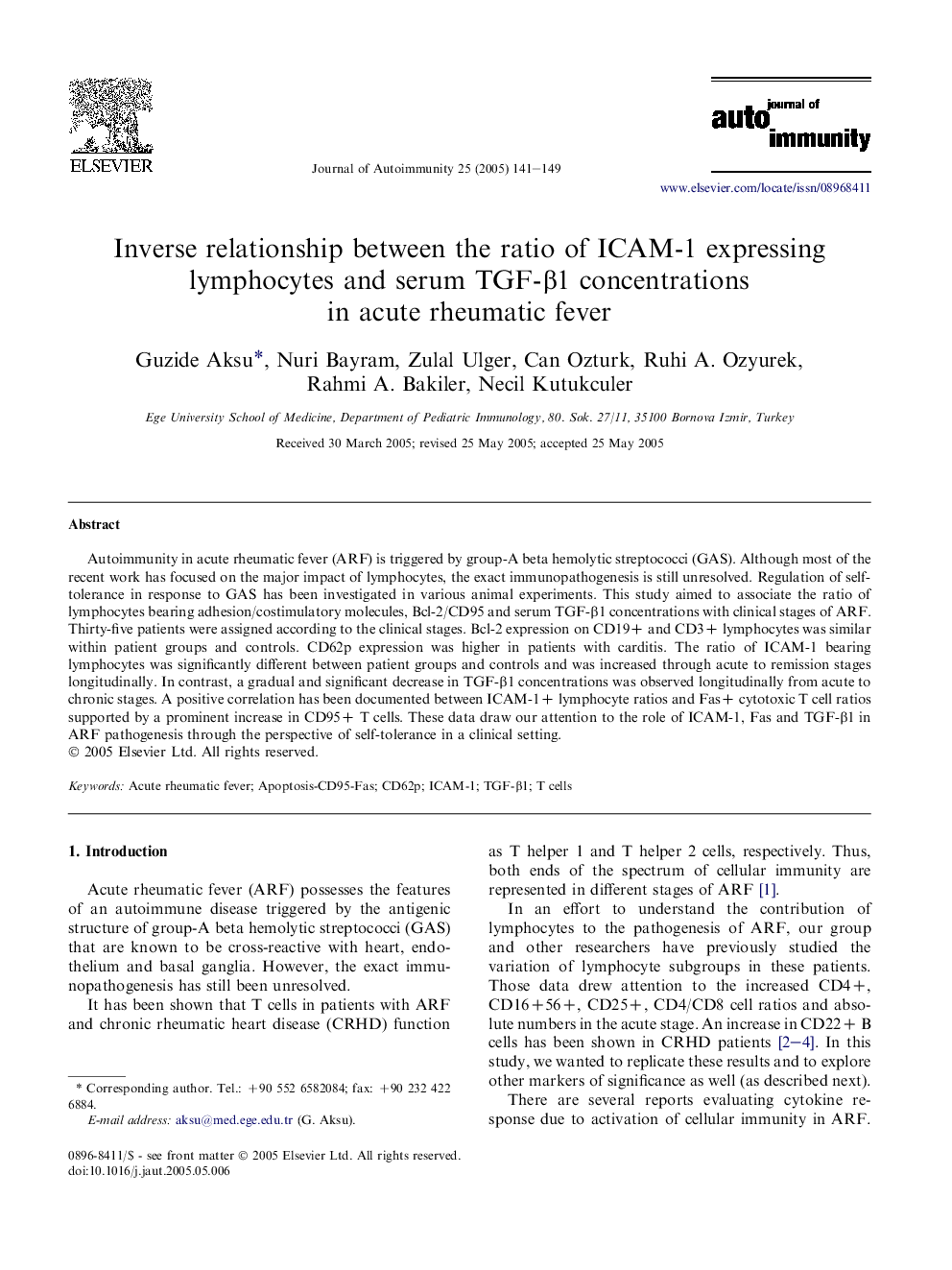| Article ID | Journal | Published Year | Pages | File Type |
|---|---|---|---|---|
| 9267824 | Journal of Autoimmunity | 2005 | 9 Pages |
Abstract
Autoimmunity in acute rheumatic fever (ARF) is triggered by group-A beta hemolytic streptococci (GAS). Although most of the recent work has focused on the major impact of lymphocytes, the exact immunopathogenesis is still unresolved. Regulation of self-tolerance in response to GAS has been investigated in various animal experiments. This study aimed to associate the ratio of lymphocytes bearing adhesion/costimulatory molecules, Bcl-2/CD95 and serum TGF-β1 concentrations with clinical stages of ARF. Thirty-five patients were assigned according to the clinical stages. Bcl-2 expression on CD19+ and CD3+ lymphocytes was similar within patient groups and controls. CD62p expression was higher in patients with carditis. The ratio of ICAM-1 bearing lymphocytes was significantly different between patient groups and controls and was increased through acute to remission stages longitudinally. In contrast, a gradual and significant decrease in TGF-β1 concentrations was observed longitudinally from acute to chronic stages. A positive correlation has been documented between ICAM-1+ lymphocyte ratios and Fas+ cytotoxic T cell ratios supported by a prominent increase in CD95+ T cells. These data draw our attention to the role of ICAM-1, Fas and TGF-β1 in ARF pathogenesis through the perspective of self-tolerance in a clinical setting.
Related Topics
Life Sciences
Immunology and Microbiology
Immunology
Authors
Guzide Aksu, Nuri Bayram, Zulal Ulger, Can Ozturk, Ruhi A. Ozyurek, Rahmi A. Bakiler, Necil Kutukculer,
